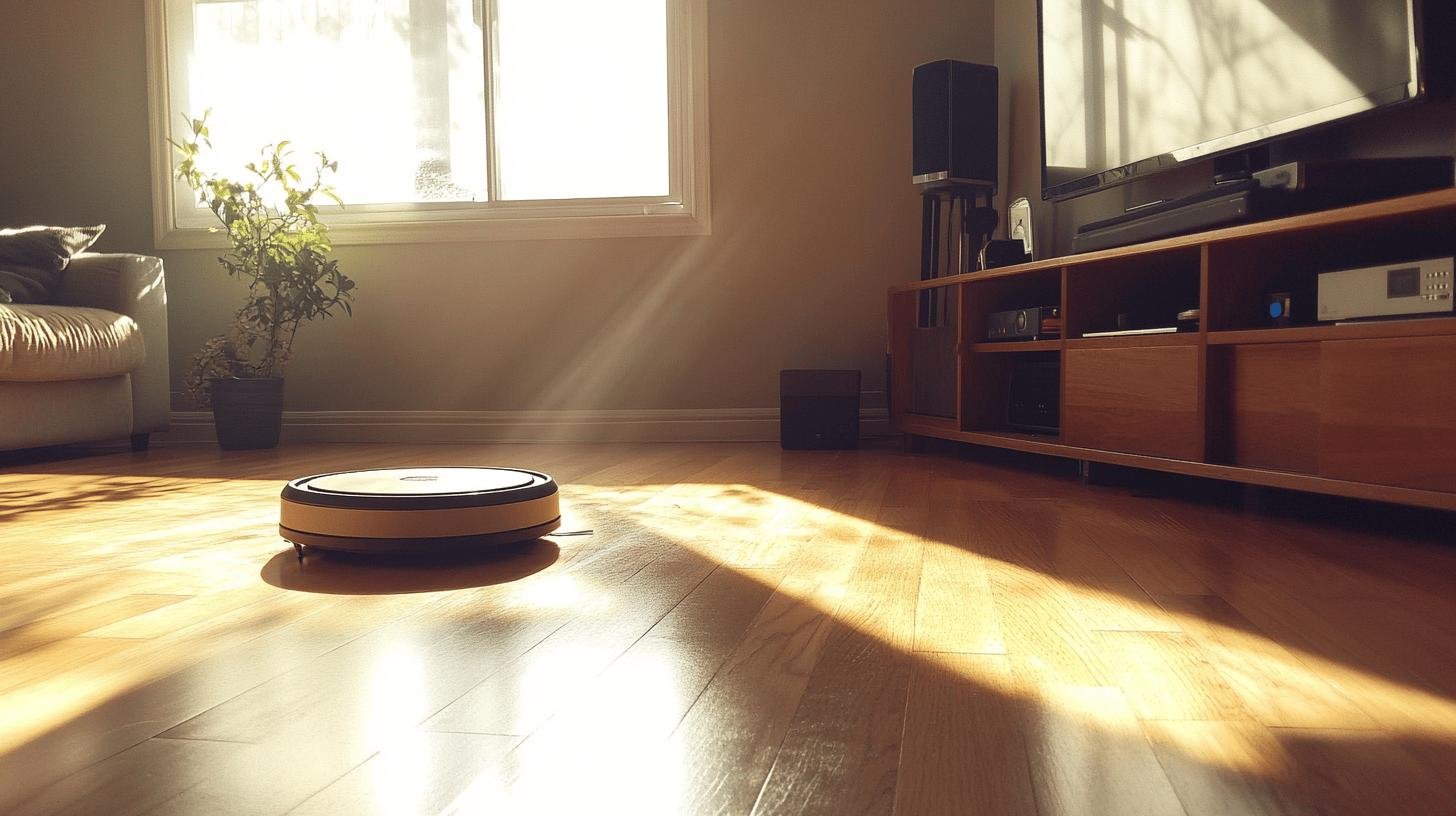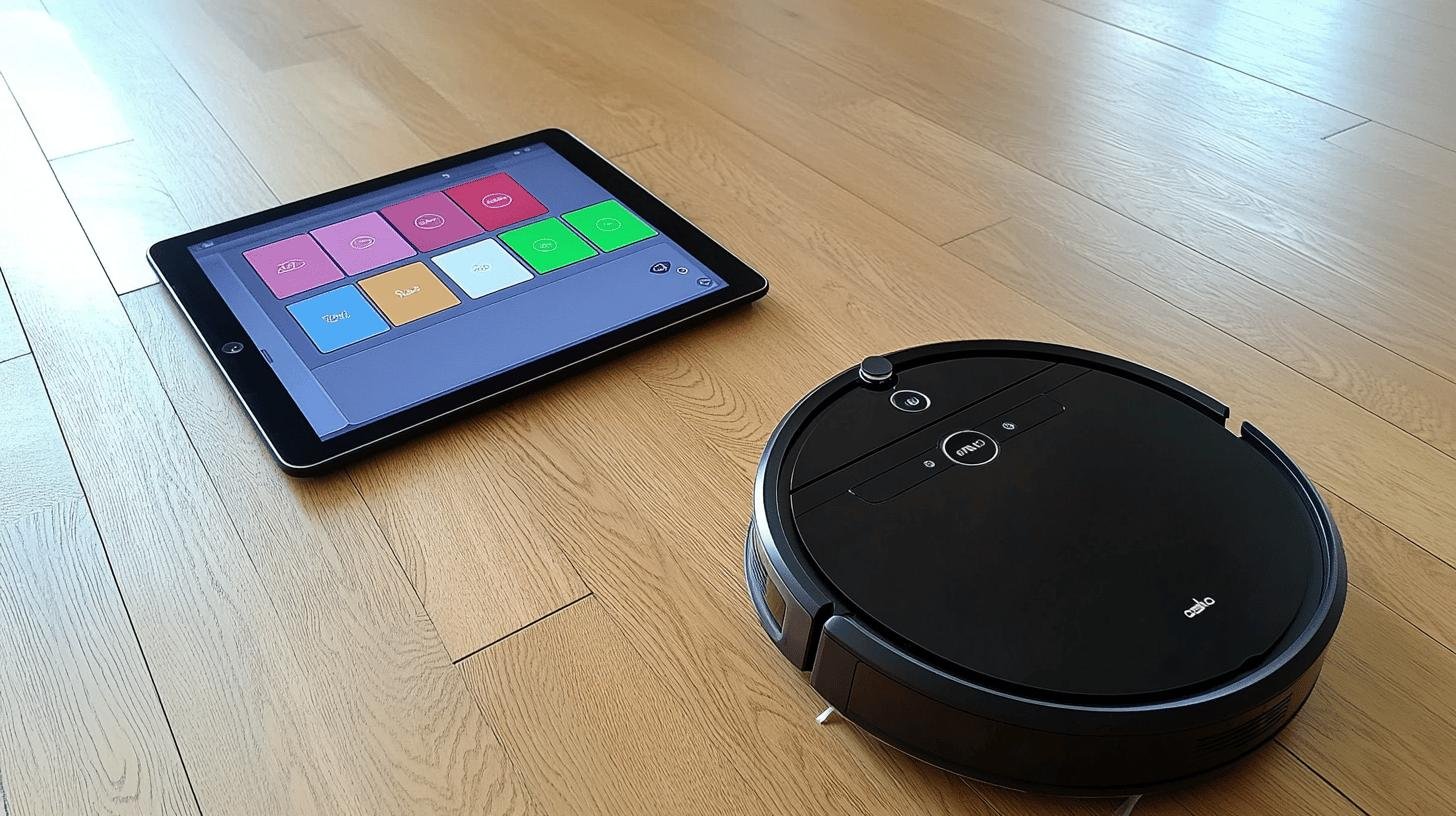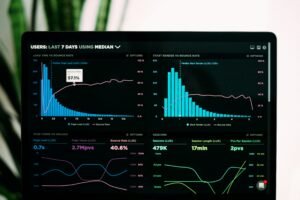Ever wonder how AI’s reshaping your cleaning routine? It’s not just sci-fi anymore—housekeeping’s going digital, and AI’s leading the charge. Imagine waking up to a sparkling floor without lifting a finger. Yep, thanks to AI, gadgets like robotic vacuum cleaners (hello, Roomba!) handle the dirty work. These smart devices use sensors to dodge obstacles and plan cleaning routes, making them more efficient. So, how is AI used in housekeeping today? Let’s find out how AI-powered cleaning solutions are making our lives easier and maybe a bit lazier. Get ready to explore!
AI-Powered Devices in Housekeeping
Let’s begin. How is AI used in housekeeping? AI is changing the way we clean our homes, making it easier than ever. From vacuuming to mopping, AI-powered solutions are stepping in to help. These smart machines are not just any robots; they have sensors and cameras. This lets them navigate your home and avoid obstacles with ease. Imagine a helper that knows where to go and what to dodge without you lifting a finger. Sounds great, right?
Let’s discuss some popular AI devices transforming cleaning. Robotic vacuum cleaners, like the Roomba, are leading the charge. These clever gadgets zip around your home, sucking up dust while you relax. They can be scheduled to clean anytime that suits you. Whether it’s daily at noon or after dinner, these vacuums have you covered.
How is AI used in housekeeping, and why use AI robots for housekeeping? First, they save you time. Instead of weekend vacuuming, let these little robots handle it. They also clean better by focusing on busy areas, giving those spots extra attention. With less need for you to intervene, enjoy a cleaner home without hassle. It’s like having a tiny cleaning team on your side!
Smart Home Devices Enhancing Housekeeping

Further on this, how is AI used in housekeeping? Smart devices are making housekeeping easier. How do they fit into daily cleaning? With tools like Google Nest and Amazon Alexa, you can control cleaning schedules with your voice. Imagine saying, “Hey Alexa, start cleaning,” and everything begins. It’s like having an assistant that never rests!
Google Nest automates cleaning schedules, making household tasks easier. Amazon Alexa allows for voice-controlled task management. The iRobot Home App customizes vacuuming routines based on user preferences. Samsung SmartThings integrates home appliances for improved efficiency.
These voice-activated gadgets simplify managing tasks. Instead of fiddling with reminders or buttons, speak up. Want lights dimmed during cleaning or the vacuum to run while out? Smart devices have you covered, ensuring a clean home without lifting a finger. It’s living in the future, today!
AI in Hospitality Housekeeping
How is AI used in housekeeping? AI is transforming hotel housekeeping, making it efficient and guest-friendly. Picture AI robots in hotels, delivering room service and cleaning up. They’re more than cool gadgets—they greatly assist staff by handling repetitive tasks, allowing humans to focus on personal interactions. This leads to better, faster guest service.
AI Technologies in Hospitality
Let’s explore some of this tech! Let’s keep exploring—how is AI used in housekeeping? AI robots take care of vacuuming and delivering towels. They’re like housekeeping’s secret agents, working behind the scenes for cleanliness. AI assistants and chatbots enhance guest satisfaction. Need an extra pillow or have questions? These digital aides help out, ensuring guests feel important without delay.
Optii Solutions is advancing tech to streamline housekeeping. Their systems improve staff management, crucial during labor shortages. By optimizing tasks, hotels reduce costs and operate smoothly.
Regarding benefits and challenges of AI in housekeeping: AI boosts efficiency, saving time on repetitive chores. Hotels cut labor costs and offer quicker, personalized service. However, there are challenges. High initial costs can be deterrents, and job displacement worries some people. The key is balancing AI’s strengths with valuing human input.
Benefits and Challenges of AI in Housekeeping

How is AI used in housekeeping? What are the benefits and challenges? AI is a housekeeping superhero, making things faster and smoother. How does it improve efficiency? It handles repetitive tasks like vacuuming, freeing humans for more important things, meaning quicker chores with fewer errors. Also, AI aids in predictive maintenance, spotting equipment issues before they arise, reducing downtime, and saving money.
What about the drawbacks? The high initial costs of installing AI can deter businesses. Job displacement is a concern, as AI could take over roles, making people anxious about their jobs. Like when washing machines first appeared, there was anxiety about job implications.
How to tackle these challenges? Balance is essential. Businesses can start small, using AI in specific areas to see its benefits. Training programs help workers gain new skills for managing AI, turning potential problems into opportunities. By blending AI with a human touch, we can advance housekeeping without leaving anyone behind.
Future Trends in AI Housekeeping
When it comes to future trends in housekeeping, how is AI used in housekeeping? AI in housekeeping is getting cooler! The future holds fantastic advancements. Machine learning and robotics are boosting our cleaning gadgets. Imagine robots handling complex tasks, not just vacuuming. They’ll learn and adapt, becoming smarter and more efficient. Plus, AI is great at personalizing experiences. Your cleaning routine could be tailored to your style and preferences. How neat is that?
What’s the future of housekeeping, and how is AI used in housekeeping? As trends grow, cleaning will feel effortless. With IoT, smart devices work together for easy home management. Predictive analytics will keep everything running smoothly by foreseeing maintenance needs before breakdowns. It’s like having a crystal ball for your home! This tech wave will save time and make spaces cleaner and more organized than ever before. It’s like living in a sci-fi movie, but it’s real life!
Conclusion
So, how is AI used in housekeeping? AI in housekeeping is shaking things up! From advanced devices like robotic vacuums to smart home systems, the cleaning game is getting quite an upgrade. We’ve covered how these AI marvels handle everything from routine clean-ups to impressive navigation. And AI’s entrance into hospitality promises boosted efficiency and guest satisfaction.
Sure, there are some hurdles, like costs and job concerns, but tech advances aim to ease these bumps. The future’s looking bright for AI-powered housekeeping, with smarter, more personalized tools on the horizon.
FAQ
How is AI used in housekeeping for the hotel industry?
AI helps hotels automate booking, manage cleaning schedules, and improve guest experience through chatbots and virtual assistants. This streamlines operations, boosts efficiency, and enhances service quality.
What are some examples of artificial intelligence in the hospitality industry?
In hospitality, AI is used for room service robots, digital check-ins, predictive housekeeping, and smart energy management systems. These examples improve operational efficiency and guest satisfaction.
What are the benefits of AI in the hospitality industry?
AI in hospitality offers benefits like enhanced guest experiences, reduced operational costs, and improved efficiency. It helps with personalized recommendations and streamlines routine tasks.
What are the disadvantages of AI in the hospitality industry?
Disadvantages include high initial costs and potential job displacement. Additionally, there can be technical challenges and a need for continuous maintenance and upgrades.
How is AI used in cleaning?
AI-powered robots handle tasks such as vacuuming, mopping, and dusting. They use sensors and cameras for smooth navigation and avoiding obstacles, making cleaning more efficient.




